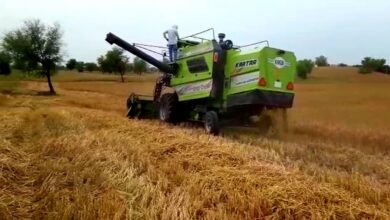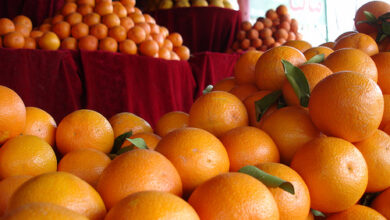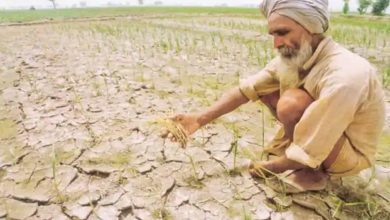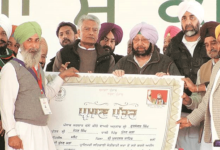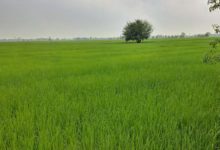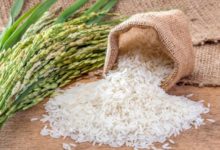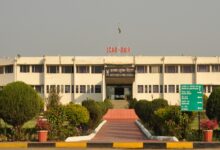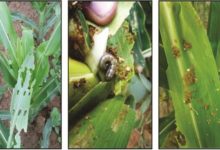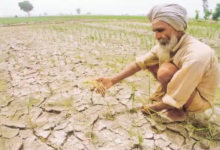News
PUNJAB WANTS A BAN ON AGROCHEMICALS HARMING BASMATI CROP
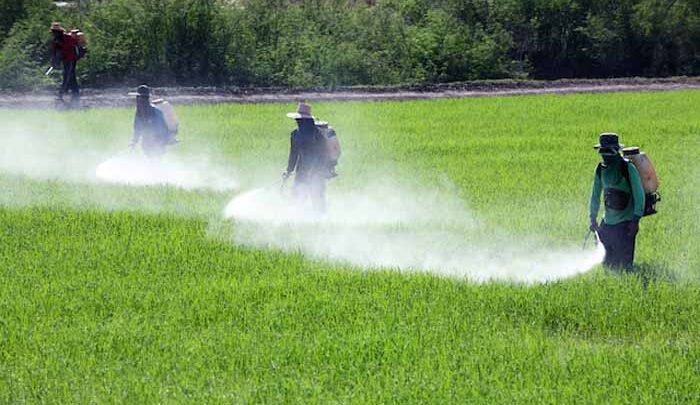
The Punjab agriculture department has asked the Centre to impose a ban on six agrochemicals (pesticides). The agrochemicals in question are acephate, buprofezin, carbofuron, thiophanate-methyl, tricyclazole and propiconazole.
In a communiqué sent to the ministry recently, the department said residues of pesticides in basmati rice have been an impediment in export of the premium rice.
In the last year’s kharif season (of 2020), Punjab had banned nine compounds of agrochemicals —triazophos, propiconazole and thiamethoxam, along with the six named above — for a period of six months.
The government of India has banned triazophos, while the other two have been recommended by the Punjab Agricultural University (PAU) for use on crops. “Rest six compounds are awaiting a ban despite our repeated reminders,” an agriculture department officer said.
The issue was again discussed recently in a meeting with a joint secretary-level officer of the central ministry as basmati transplantation is underway and from next month the use of these agro-chemicals is expected to start. “We want to curb the use of harmful agrochemical at the right time,” said Punjab’s director agriculture SS Sidhu. He added that as per the provisions, the state can only impose temporary ban for 60 days while the Centre can enforce complete ban, invoking Section 27(2) of the Insecticide Act 1968.
BASMATI CONSIGNMENTS REJECTED DUE TO TRACES OF PESTICIDES
In May, the middle-eastern country Saudi Arabia insisted to tighten the norms of minimum residue level (MRL) of pesticides and insecticides in the premium aromatic basmati rice imported from India, on a par with the European countries.
The move raised alarm bells for the basmati exporters as the middle-eastren importers and the Saudi Food and Drug Administration (SFDA) have decided to follow stringent quality check for chemical (not more than 0.01mg in a kilogram) residues in of basmati coming from India.
Annually, basmati export from India is worth ₹34,000 crore, out of with Punjab contributes 40%.
Following reports of European countries testing premium variety basmati rice imported from India with traces of cancer causing fungicide tricyclazole, Saudi Arabia had also asked exporters to cut use of fungicide. Significantly, Saudi Arabia is the largest importer of basmati from the country, with 70% of the $2 billion (₹12,000 crore) consignment headed for it.
Reports suggest that the Saudi Food and Drug Administration (SFDA) has decided to follow stringent norms for quality checks of basmati coming from India and has started conducting tests. Some consignments of basmati have been rejected after testing positive for residues of pesticides.
SFDA has started fungicide levels as per European Union standards with traces of tricyclazole not more than 0.01 mg in a kilogram of rice. “We should get serious now. The governments in the centre and the (two) states of Punjab and Haryana have to act,” said Vijay Setia, Basmati Exporters Association President. Why can’t we stop excessive use of fungicide which is a health concern,” asked Setia. Around 50% of Punjab’s basmati export is to Saudi Arabia and 40% of the country’s total export is also from the state.
He added that his association was willing to get samples tested from farmers’ fields and if no traces of fungicide were found, the farmer would be paid 10-15% more than the prevailing rates.
30 CONTAINERS OF BASMATI WERE REJECTED
Since January, Norway, Sweden, England and Finland have rejected at least 30 containers of basmati. About 25 lakh tonne of basmati is procured from Punjab alone for exports. As basmati growers in Jammu and Kashmir don’t use tricyclazole, exporters turned towards the state for procurement of basmati and bought 25,000 tonne, paying J&K farmers more.
“No doubt, the variety ‘1121’ of Punjab basmati is loved worldwide but, being very health conscious and having strict norms, European and Middle Eastern countries check every consignment,” said Ashok Sethi, a director with the exporters association.
The exporters association has started a campaign and reached out to basmati growers in four districts of Punjab not to use the lethal fungicide. These are Amritsar, Tarn Taran, Gurdaspur, Ferozpur and Pathankot.
The Exporter Association has also approached the Agricultural and Processed Food Products Exports Development Authority (APEDA) and the department of chemicals under the Union minister of chemicals and fertilisers to take up the matter with the Saudi Arabian government to ensure that there is no disruption in export of basmati.
“If things do not change, exports would end, ruining the industry and farmers will bear the brunt,” added Setia. Exporters have also approached the Indian ambassador in Riyadh, the Saudi Arabian capital, to request the SFDA not to go ahead with its notification on cutting the use of fungicide and defer its implementation, until a mutually agreeable solution is arrived at.

